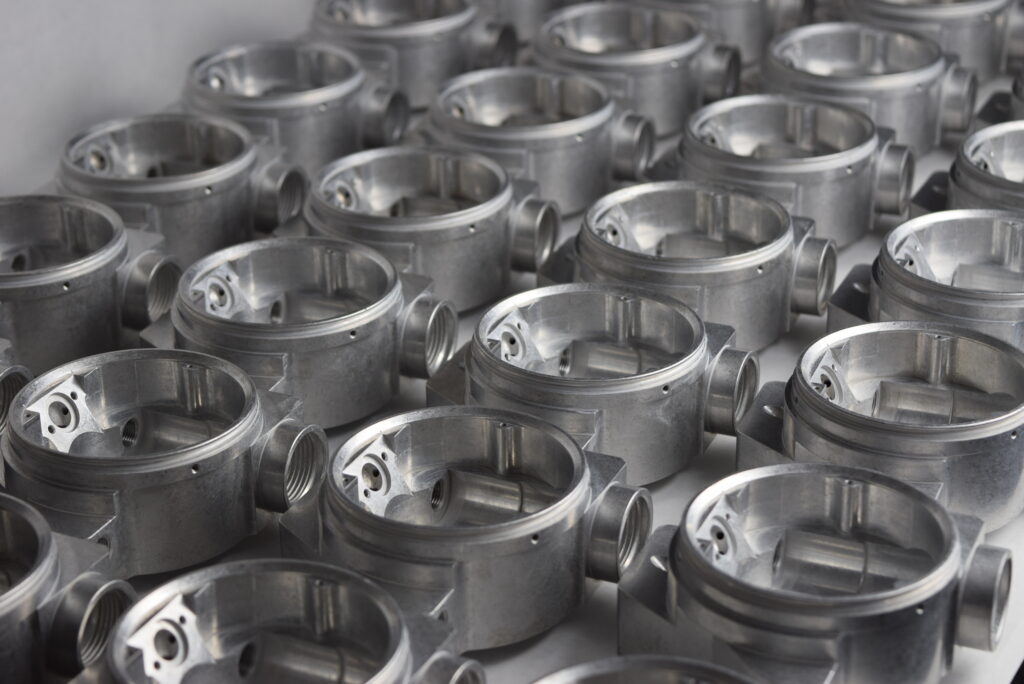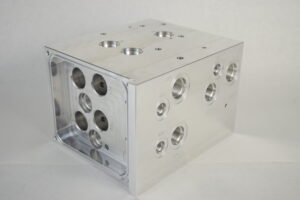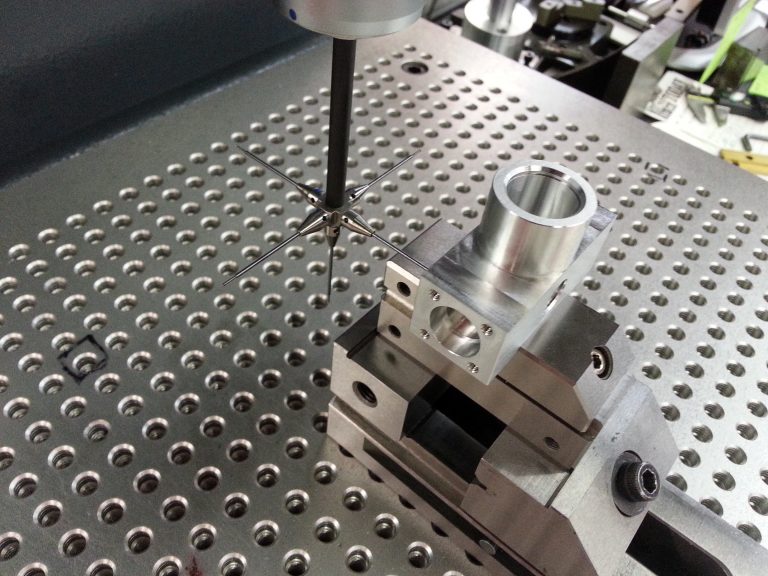Kanban is a Japanese term meaning “signal.” People worldwide widely use the term today to denote a form of replenishment signal that transmits information generally about the movement or production of products.
Machine Incorporated has embraced the implementation of Kanban systems for our customers.
A Kanban system can signal the authorization to move material or product from the supplying location to the consuming location. Kanban parts also signal the authorization to produce additional product.
What are the main benefits of a Kanban system?
One big benefit of a Kanban system is that it puts limits on inventory build-up. A Kanban acts as a limit. A full Kanban prevents making or moving additional product into that location. Limiting inventory brings significant benefits: it ties up less cash, requires less space, reduces handling, and decreases the risk of handling damage. Reductions of work-in-process (WIP) inventory have the additional benefits of reducing your products’ lead-time (think of items in WIP as standing in line, waiting their turn for processing. The longer the line, i.e. the more WIP, the longer they’ll have to wait.)

Inventory limits means less cash is tied up, less space, less handling, less handling damage.
Maintaining less inventory minimizes the scrap or rework needed when a defect is discovered. And, since you have fewer Kanban parts inventory, less inventory means shorter lead times. A Kanban control system shortens the time between creation of a defect and its discovery, thereby improving the chances of correctly diagnosing its cause.
For repetitive items, a Kanban system can also reduce the reliance on engineering forecasts. However, in this person’s opinion, one of the most powerful aspects of Kanban is the ease that it provides for forcing continuous improvement, at the grass roots shop floor level of the organization.
Inventory reduction exposes problems and forces solutions to those problems. A Kanban system provides a simple visible mechanism for shop-floor people to translate top-level management objectives into concrete actions, e.g. “Cut the size of the Kanban between operation 1 and operation 2 by 70% in the next 6 weeks.”
Is Kanban the same as “pull”?
Pull can be used to define a philosophy: “Make or move an item only when needed,” or a formal “pull system” which will typically utilize Kanban parts as the signaling device. In a pull environment, each operation required to produce a product is considered to be the customer of the preceding operation. The Kanban, or pull signal, is treated like the customer order. In a pull system environment, items are not processed without a “customer order,” i.e. a pull signal. Items are therefore made and/or moved “just in time.”

Is a Kanban System the same as a Lean Manufacturing System?
No. “Lean” defines an operating philosophy. While there are a whole set of techniques and related disciplines, the general concept of “Lean Manufacturing” is that of continuous product flow, without interruption, through the entire value stream. Inventory is seen as an equivalent to cycle time (the more inventory, the longer any one item must wait for “its turn”). An underlying philosophy is that the reduction of cycle times and inventories will force waste to be exposed, and create the urgency for its elimination (as depicted in the classical “water and rocks” analogy).
Waste is re-defined as “anything that does not add value from the customer’s perspective.” A Kanban system defines a powerful technique that is used in lean enterprises. A Kanban is basically a signaling device, used to control when and how much of an item is made or moved.
Ship To Stock – Driven by Kanban
As part of the commonsense, managed-solutions approach Machine Inc. provides customers, our ship to stock program combines lean principles, accuracy, dependability, and trust to your supply chain.
We ship our high-quality components directly into your stock and are ready to feed your production line upon delivery. Our track record for quality and efficiency save you time and cost. Machine Inc. has the systems, process, and products audits firmly established that allow for the stable maintenance of this program. Our AS9100D and ISO 9001:2015 quality certifications ensure that quality and traceability is paramount to manufacturing all products to exact specifications.
Trust is a cornerstone philosophy of how we do business. It is through business models like our highly successful and reliable ship to stock program that we have enduring customer relationships.

Through ship to stock, you build dependability and reduce:
- General resource management for Procurement and Engineering Departments
- The gap between delivery to availability on the assembly line
- The need for specialised test equipment
- Level and burden of rejected product
- Burdensome inspection and audit
- Failure discovery windows
- Inventory levels
- Costs
Earning and keeping the customer’s trust is a cornerstone philosophy of how we do business. It is through business models like our highly successful and reliable ship to stock program that we have enduring customer relationships.
Ship to stock with Machine Inc. to get the right Kanban parts at the right time, on time. Contact us to see how we can help you optimise your supply chain needs.
Learn more about…








